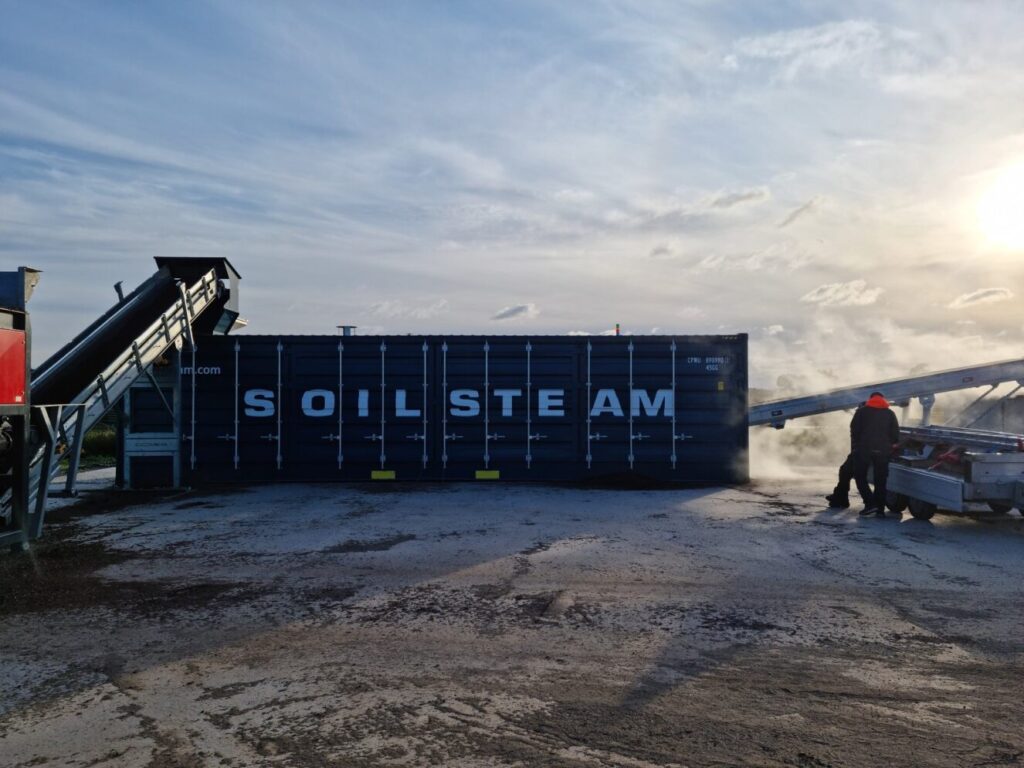SoilSteam International AS is proud to announce its first project in Sweden
In collaboration with Svevia and Trafikverket, we will steam-treat and recover approximately 1,500 tonnes of lupin-contaminated soil in Umeå during June 2025. This marks an important milestone for SoilSteam — and a breakthrough for sustainable management of invasive species in Swedish soil.

A Strategically Important Collaboration
Svevia and Trafikverket are the most influential players in Sweden’s road and infrastructure sector. Their decision to choose SoilSteam’s technology demonstrates forward-thinking and confidence in steaming as a viable solution.
“We’re very excited about this opportunity to collaborate with Svevia and Trafikverket,” says Hans Kristian Westrum, founder and Sales Director at SoilSteam.
“This is a strong recognition of our technology and a major step toward establishing steam-based soil recovery as a sustainable practice in Sweden.”
Soil Steaming – A Green Alternative
Lupins are among the most problematic invasive species in Scandinavia. They spread rapidly through seeds and outcompete native species, reducing biodiversity and creating poor conditions for pollinators.
By using SoilSteam’s steam-based method, contaminated soil can be treated effectively and reused — instead of being sent to landfill. This is not only environmentally sound, but also cost-efficient.
Kristina Svahn from Svevia comments:
“We’ve been looking for effective methods to combat invasive species without having to dispose of large volumes of soil. If this project proves successful, we could significantly reduce the need for landfilling in the future – which is a very positive development.”
A Turning Point for Soil Recovery in Sweden?
The Umeå project is the first of its kind in Sweden and could serve as an important reference for other regions and stakeholders facing similar challenges.
SoilSteam looks forward to expanding this collaboration and helping make soil steaming a standard practice for managing invasive species.
About Invasive Species and Lupins
Invasive alien species are plants, animals, or microorganisms that have spread outside their natural habitats due to human activity and pose a threat to biodiversity, health, or the economy.
Lupins (Lupinus polyphyllus) are perennial plants that form dense stands along roadsides and slopes.
They spread easily through seeds, which can be transported in soil, on machinery, and by vehicles.
Lupins displace native plants, reduce the abundance of pollinator-friendly flowers, and diminish overall ecological diversity.
Soil steaming is a proven and effective method to prevent the spread of such species while preserving the quality of the soil.
Want to learn more about how SoilSteam can help tackle invasive species challenges?
Get in touch with our team or read more about our technology here on our website.
Together, we can turn soil into a resource – not a waste problem.